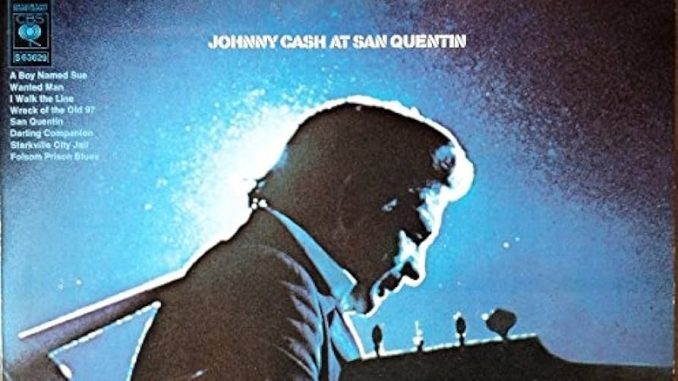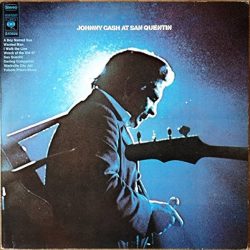
 I can’t tell you exactly when I first heard this album, but I can tell you exactly where I was – in Fraser Park in Inverness with a couple of friends, huddled around a little portable tape cassette player. I’d guess we were maybe ten or eleven, young enough to still be giggling at the shocking sound of a man swearing so outrageously on his concert recording that his words had to be bleeped out.
I can’t tell you exactly when I first heard this album, but I can tell you exactly where I was – in Fraser Park in Inverness with a couple of friends, huddled around a little portable tape cassette player. I’d guess we were maybe ten or eleven, young enough to still be giggling at the shocking sound of a man swearing so outrageously on his concert recording that his words had to be bleeped out.
Back then, Inverness was still very much a staid little Highland town where the church ensured that children were best ‘seen and not heard’, and strict sabbath observance meant we all suffered long and very dull Sundays. In such a pious environment there was so much on that tape cassette that was genuinely shocking, beyond even the snigger-inducing bleeps. This was an established American performer entertaining convicted criminals in one of the most dangerous prisons in America, and treating the inmates with respect and even affection, like they were his friends. It’s not too big a leap to say that listening to that album was probably my introduction to ‘alternative’ thinking. By the time I was in my mid-teens, I was instantly smitten by The Clash because of Johnny Cash. ‘At San Quentin’ was, and still is, a big deal for me.
By the time he recorded this album Cash had been playing to prisoners for over a decade. He’d previously had a hit album from a concert recorded in Folsom Prison (regarded by many as a superior album) and he’d even played in San Quentin on previous occasions too. But none of that detracts from this fantastic and utterly beguiling performance. Aside from providing us with the first and definitive version of one of his biggest hits, ‘A Boy Named Sue’, what made the San Quentin recording have such an impact here in the UK was it being filmed by a British film crew for a Granada TV special.
I wasn’t allowed to see the programme when it was broadcast: I’d have been deemed far too impressionable to stay up that late and watch something as dangerous as a man singing to prisoners. But that broadcast shone a shocking light on a very different type of America than the one we recognised from cowboy films. I wasn’t alone in the UK in recognising there was something very special about Cash and his relationship to the poor and downtrodden men who made up the vast population of American prisons (that’s still the case today, in both the USA and the UK). The album and the accompanying Granada TV Special changed how many of us saw America and the American Dream. Young as I was, it was my first glimpse that music can challenge real injustice and make a difference. Many of those involved in contemporary country music could do with reminding themselves of that.
Rather than go track-by-track on this brief but wonderful album, I’d rather take to chance to steer you towards a blog called Mid Century Chap, and four-part series featuring the fabulous and fascinating recollections of Michael Darlow, the man who directed the Granada TV special. If you like Johnny Cash, I’m sure you’ll enjoy these as much as I did. The first one is below and you can find the second, third and fourth here, here and here.
Dig around on YouTube and you can find uploads of the whole TV special. It’s still well worth a look. As much for his humanity, his support for original talents like the young Bob Dylan, as well as for the sheer quality of his own music, I’d argue Johnny Cash had a key role in helping develop the whole concept of americana. ‘At San Quentin’ captures him at his peak.



Hi Cam,yeah I know where you’re coming from with this album,I vaguely remember the first broadcast and my Dad bought the album,believe me it was the only record of his I ever borrowed…my mates and I would sit and listen to Rory,Purple,Sabbath etc and someone always wanted to hear San Quentin,there’s a visceral quality that makes what little hair I have stand up,which I don’t get with Folsom. Certainly a major part of where my musical taste lies today.Are you aware of the Dean Owens song about it?
Sorry about the slow reply… just back from holiday. I agree with what you’re saying 100%. I knew about his Cash-back project but not the song. Will check it out. All the best, Cam